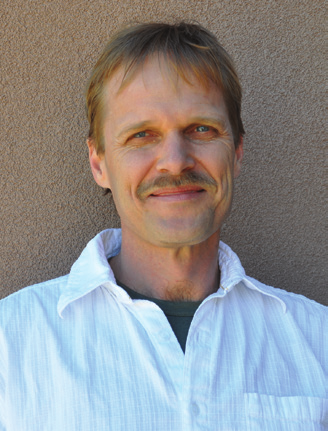Community callWatch on demand
Science on Schema.org Guidelines and Experiences
Speakers

Dave Vieglais
DataONE
As the Director for Development and Operations at DataONE, Dave Vieglais oversees development and implementation of architecture, computer science research, and technological evolution through the activities of the Working Groups and the Cyberinfrastructure CIT, including the staff of full-time developers and post-docs.
Dave has extensive experience in developing technical infrastructure for integrating biodiversity information at the global level (i.e. DiGIR, Species Analyst). He also brings significant biodiversity modeling expertise and leadership experience in Global Biodiversity Information Facility (GBIF) and the Natural Science Collections Alliance.

Daniella Lowenberg
Dryad
Daniella Lowenberg has a background in Microbiology. After leaving the lab, she was a Publications Manager at PLOS ONE where she implemented and oversaw the PLOS Data Policy. For the last two years, Daniella has been a data publishing and data metrics product manager at University of California (California Digital Library). She is currently the product manager for Dryad and project lead for Sloan Foundation funded Make Data Count.

Adam Shepherd
Biological and Chemical Oceanography Data Management Office (BCO-DMO)
Adam Shepherd is the Technical Director for the Biological and Chemical Oceanography Data Management Office (BCO-DMO) located at the Woods Hole Oceanographic Institution where he was worked as a software developer since 2000. He serves as co-chair of the Vocabulary Services and Semantics Interest Group for the Research Data Alliance. Currently, his work focuses on data semantics for improved discovery and reuse.

Chantelle Verhey
World Data System-International Technology Office hosted at Ocean Networks Canada
Chantelle Verhey is a Research Associate for the World Data System-International Technology Office hosted at Ocean Networks Canada. She has a Masters of Science in Environmental Management from the University of Reading in the UK, and was dedicated to researching Forest fire trends in the Canadian Boreal Forest. After her research was completed, Chantelle moved on to work at the University of Waterloo as a Data Manager for the Polar Data Catalogue. Now, she is combining her research and work experience to investigate the usefulness of Schema.org implementation as it attempts to open the discovery of datasets to a much broader audience.

Jeff Horsburgh
Utah State University
Dr. Jeff Horsburgh is an Associate Professor in Civil and Environmental Engineering at Utah State University. His research focuses on Hydroinformatics, watershed hydrology, surface water quality, and human dimensions of water use, including observation systems and sensor networks, data models, development of cyberinfrastructure supporting environmental observations, Geographic Information Systems, and modeling techniques for surface water hydrology and water quality.
Schema.org provides a simple mechanism to include machine readable, structured metadata in human readable web pages, including descriptions of Dataset entries on dataset landing pages. This community call will introduce the Science-on-schema.org guidelines in support of metadata harvesting by DataONE as a streamlined path into the DataONE federation and harvesting by large scale, generalist, commercial indexers (e.g. Google). We will highlight additional resources available for working with schema.org, and include experiences of some that have implemented the guidelines for their repositories. Read more
Schema.org provides a simple mechanism to include machine readable, structured metadata in human readable web pages, including descriptions of Dataset entries on dataset landing pages. The metadata is readily accessible using common web tools, and is actively harvested by large scale, generalist, commercial indexers (e.g. Google). DataONE will soon be indexing schema.org metadata as an alternative pathway for repositories to participate in the DataONE federation. The flexibility of schema.org means it can be used to describe many resources including scientific datasets, but that flexibility also enables potentially incompatible approaches for constructing such metadata. The ESIP Science-On-Schema.org group has produced an evolving set of guidelines to assist with consistent implementation of scientific dataset descriptions using the schema.org vocabulary. This community call will introduce the Science-on-schema.org guidelines, highlight additional resources available for working with schema.org, and include experiences of some that have implemented the guidelines for their repositories.
Video coming soon